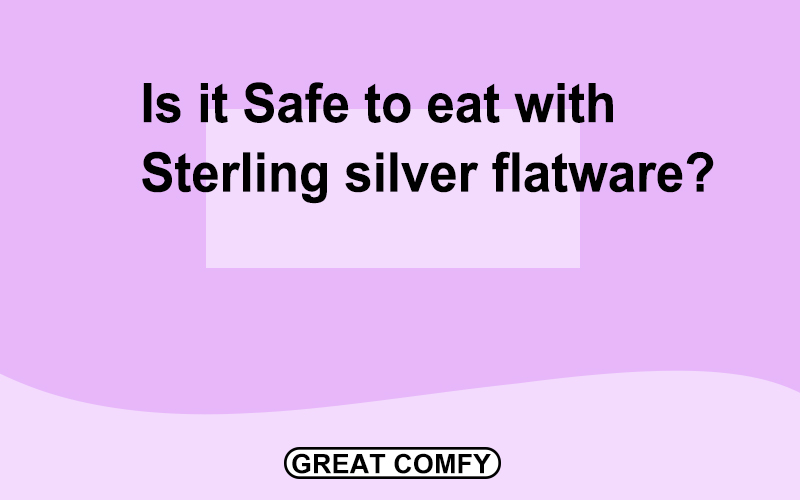Have you ever been so eager to dig into your favorite pint of ice cream that you grabbed the first spoon you found and dug right in, only to find that the spoon had been chilling in the fridge for who knows how long? You might have been left wondering whether leaving a metal spoon in the fridge is safe or not.
Well, wonder no more! We’ve got the answer to this age-old question.
Some people say that putting a metal spoon in the fridge can cause it to become too cold to use, while others swear by this method to achieve the perfect scoop of ice cream. So, can you leave a metal spoon in the fridge? Let’s find out!
Can you leave a metal spoon in the fridge?
A metal spoon may be kept in the fridge. Yes
But then, let’s go through a few things to keep in mind, though, before you start dumping all of your spoons in the icebox.
But in the first place, why on earth would you even want to keep a metal spoon in the fridge?
Well, If you’re anything like me, you’ll agree that the best thing to eat on a hot day is a spoonful of ice cream.
A cold spoon can also assist prevent ice cream from melting too rapidly and sticking to the spoon, which will help you achieve the perfect scoop. Plus, it feels extra refreshing on a hot summer day!
So, what about the safety?
Well, that depends on various factors.
Firstly, you’re safe if your spoon is made of stainless steel or silverwares. You won’t have to worry about any harmful chemicals leaking into your meals because these metals are non-reactive.
However, you might want to avoid keeping your spoon in the fridge for an extended period of time if it is made of a reactive metals like aluminum or copper. This is because this metals can alter the flavor of your foods by reacting with them, especially when they are acidic or alkaline.
Here’s an overview of this:
Acidic Foods:
- Citrus fruits (e.g. lemons, limes, oranges)
- Tomatoes and tomato-based products (e.g. pasta sauce, ketchup)
- Vinegar and pickled foods
- Carbonated drinks
- Berries (e.g. strawberries, raspberries)
Alkaline Foods:
- Leafy green vegetables (e.g. spinach, kale, broccoli)
- Nuts and seeds (e.g. almonds, sesame seeds)
- Whole grains (e.g. quinoa, brown rice)
- Avocado
- Bananas
Secondly, you may also want to take into account the amount of time the spoon will spend in the fridge.
The spoon should be alright if you are simply briefly freezing for like a few minutes before using it to scoop some ice cream.
However, it’s better to put the spoon in an airtight container or bag if you intend to keep it in the fridge for several days or weeks to avoid it becoming dusty or soiled.
Pros and cons of leaving a metal spoon in the fridge
So let’s explore the benefits and drawbacks of doing so now that we know that a metal spoon could be safe to keep in the fridge.
First up, the pros. A chilly spoon can be a game-changer when scooping ice cream, as we already explained.
It is much simpler to obtain the ideal scoop thanks to the cold metal, which helps to prevent the ice cream from melting too soon and clinging to the spoon. Moreover, a cold spoon can offer an added sense of freshness to a meal of chilled soup or pudding.
But, keeping a metal spoon in the fridge has some drawbacks as well. One is that it might occupy valuable fridge space. If you frequently run out of space in your fridge (we’ve all been there! ), you might want to give storing a spoon inside for an extended period of time some thought.
Another drawback to take into account is that a spoon left in the fridge may get too cold to use comfortably. Have you ever tried consuming ice cream with a spoon that was so icy cold it burned your tongue? Well, that wasn’t the best experience.
But, keeping a metal spoon in the fridge has some drawbacks as well. One is that it might occupy valuable fridge space. If you frequently run out of space in your fridge (we’ve all been there! ), you might want to give storing a spoon inside for an extended period of time some thought.
Another drawback to take into account is that a spoon left in the refrigerator may get too cold to handle comfortably. Have you ever tried eating ice cream with a spoon so cold that it seems like it is burning your tongue? That’s not a good experience, I agree. So you might need to warm it up before using it.
Last but not least, as we just discussed, some metals may react with some foods and change the flavor. Avoid storing a spoon made of a reactive metal, such as aluminum or copper, in the fridge for an extended period of time to avoid any undesirable reactions.
Conclusion
You can now put an end to the age-old debate about whether it is okay to keep a metal spoon in the fridge. When scooping ice cream, a cold spoon can be a game-changer, but there are advantages and disadvantages to take into account, such as limited fridge space and uncomfortable temperatures.




